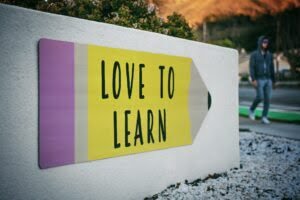Introduction
Education and socialization are two interrelated activities that are essential in forming people and society at large. Education focuses on the formal transfer of knowledge and abilities, whereas socialization refers to the process of acquiring societal norms, values, and behaviors. We will discuss the connection between socialization and education in this blog post, focusing on the institutions of socialization and education—family, peers, school, and the media—in particular.
The Role of Family
Family is the primary agency of socialization and education for most individuals. It is within the family unit that children first learn about social norms, values, and behaviors. Parents and caregivers serve as role models and provide guidance, teaching children how to interact with others, develop language skills, and acquire basic knowledge about the world. The family also plays a crucial role in transmitting cultural traditions and beliefs from one generation to the next.
The family has a role in education that goes beyond socialization. Parents are frequently a child’s first teachers, imparting fundamental knowledge like reading, writing, and math to their offspring. They also foster a love of study and offer a nurturing atmosphere that promotes intellectual development. An education a child receives is greatly influenced by the nature of their family ties and the degree of parental participation.
The Influence of Peer Groups
As children grow older, peer groups become increasingly influential in the process of socialization and education. Peer groups are composed of individuals of similar age and social status who share common interests and experiences. These groups provide a platform for social interaction, where children learn to navigate social dynamics, develop friendships, and acquire social skills.
Peer groups are important in the educational process as well. Collaborative learning and peer tutoring can enhance academic achievement and cognitive development. However, peer pressure can also have adverse effects, influencing behavior and attitudes in ways that may not align with societal norms or educational goals. Therefore, educational institutions and families need to guide children in choosing positive peer groups and fostering healthy relationships.
The School as an Educational Institution
Schools are formal institutions dedicated to education and play a crucial role in the socialization process. They offer organized learning settings where kids can participate in a range of extracurricular activities, pick up new skills, and hone their critical thinking abilities.
In addition to academic education, schools also impart socialization. They teach students how to interact with authority figures, follow rules, and work collaboratively with their peers. Schools contribute to the development of social skills, such as communication, teamwork, and problem-solving, which are essential for success in the adult world.
The Impact of Media
In today’s digital age, media has become a powerful agency of socialization and education. People are exposed to a vast array of knowledge, concepts, and morals via social media, movies, television, and the internet. The media forms opinions, affects cultural standards, and can have a significant effect on people’s attitudes and behaviors.
The media contributes to education by giving people access to a multitude of information and tools. Online platforms offer educational content, interactive learning tools, and virtual classrooms, expanding educational opportunities beyond traditional boundaries. However, the influence of media on education should be critically evaluated, as not all information found in the media is accurate or beneficial.
Conclusion
Socialization and education are intertwined processes that shape individuals’ beliefs, values, and behaviors. The agencies of socialization and education, including family, peer groups, school, and media, all contribute to an individual’s development. Understanding the relationship between these agencies is crucial for creating effective educational strategies and fostering positive socialization experiences. By recognizing the influence of each agency and promoting healthy interactions within them, we can ensure that individuals receive a well-rounded education and develop into responsible members of society.
Remember, socialization and education are ongoing processes that continue throughout our lives. By recognizing the significance of these organizations and their influence, we can endeavor to establish a community that prioritizes continuous education and constructive socialization.
























+ There are no comments
Add yours